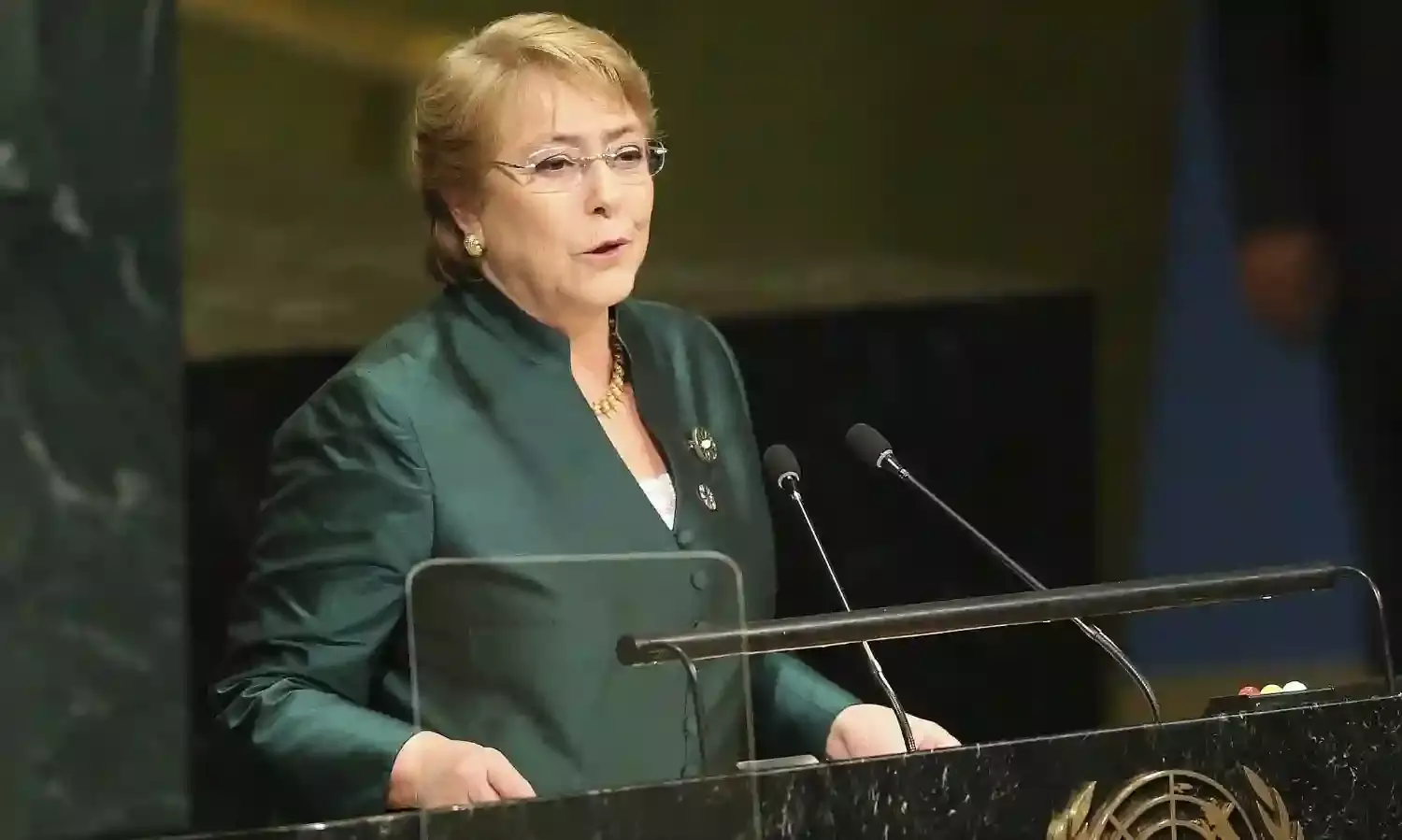OHCHR Intervenes on CAA in the Supreme Court
‘The CAA unequally places other communities at such risk’

NEW DELHI: News is breaking that the United Nations High Commissioner for Human Rights Michelle Bachelet Jeria has filed an intervention application in the Supreme Court of India on the CAA. The UN High Commissioner is intervening in a writ petition challenging the Citizenship (Amendment) Act filed last December by retired Indian Foreign Service officer Deb Mukharji.
An unauthenticated copy of the application to the Supreme Court states that all migrants, whether citizens or non-citizens, enjoy all human rights and the right to equality before the law under several UN conventions and declarations by which the government of India is bound.
These include the International Covenant on Civil and Political Rights (ICCPR), the International Covenant on Economic, Social and Cultural Rights (ICESCR), the International Covenant on the Elimination of Racial Discrimination (ICERD), the Convention on the Rights of the Child (CRC), the Convention on the Elimination of Discrimination Against Women (CEDAW), and the Universal Declaration of Human Rights.
It submits to the Supreme Court that “The right to equality before the law is to protect from arbitrary and unjustified differential treatment by the authorities… The principle of equality also requires that States adopt several measures to eliminate the conditions that cause or help perpetuate various forms of discrimination.”
“Indeed, international human rights law does not distinguish between citizens and non-citizens or between different groups of non-citizens, within the jurisdiction of the State party in their equal right to enjoy protection from discrimination and be equal before the law, including in respect of their migration status,” the application continues.
On the CAA, the copy of the intervention application reads: “While reducing the risk of refoulement for certain communities, the CAA unequally places other communities at such risk.”
Refoulement refers to refugees or asylum seekers being forcibly returned to a place they are likely to be persecuted. The Indian government has returned at least two groups of Rohingya Muslim refugees fleeing state-sponsored genocide back to Myanmar in the past few months.
The Ministry of External Affairs reiterated in a statement that the CAA “is an internal matter of India” and “We are clear that the CAA is constitutionally valid and complies with all requirements of our constitutional values. It is reflective of our long standing commitment in respect of human rights issues arising from the tragedy of the Partition of India.”
The UN High Commissioner’s application recalls that as the Covenant on Civil and Political Rights was being prepared, India championed the right to “equal protection of the law in 1949, insisting on its inclusion alongside the right to equality before the law. It is remarkable that, sixty years later, this very issue lies at the heart of this Honourable Court’s deliberations as it examines the Citizenship Amendment Act.”
In Geneva on February 27, OHCHR High Commissioner Bachelet addressed the UN Human Rights Council on human rights issues in countries including India saying:
“In Jammu and Kashmir, while some political leaders have been released, and ordinary life may be returning to normal in some respects, as many as 800 people reportedly remain in detention, including political leaders and activists. Schools, businesses and livelihoods have been disrupted by the continued heavy military presence, and no steps have been taken to address allegations of excessive use of force and other serious human rights violations by security forces. The Indian government has partially restored mobile and internet services, after an important decision by the Indian Supreme Court, but authorities continue to impose excessive restrictions on the use of social media.
“In India more broadly, the Citizenship Amendment Act adopted last December is of great concern. Indians in huge numbers, and from all communities, have expressed – in a mostly peaceful manner – their opposition to the Act, and support for the country's long tradition of secularism. I am concerned by reports of police inaction in the face of attacks against Muslims by other groups, as well as previous reports of excessive use of force by police against peaceful protesters. This has now widened into broader inter-communal attacks, with 34 people killed since Sunday 23 February. I appeal to all political leaders to prevent violence.”
The Citizen reported last October on hearings in the US Congress where senior government officials condemned the Citizenship Bill and NRC, one describing it as "a bald attempt to split the society."
(Correction: An earlier version of this story incorrectly mentioned UNHCR in the headline. This has been corrected on March 05, 2020)



